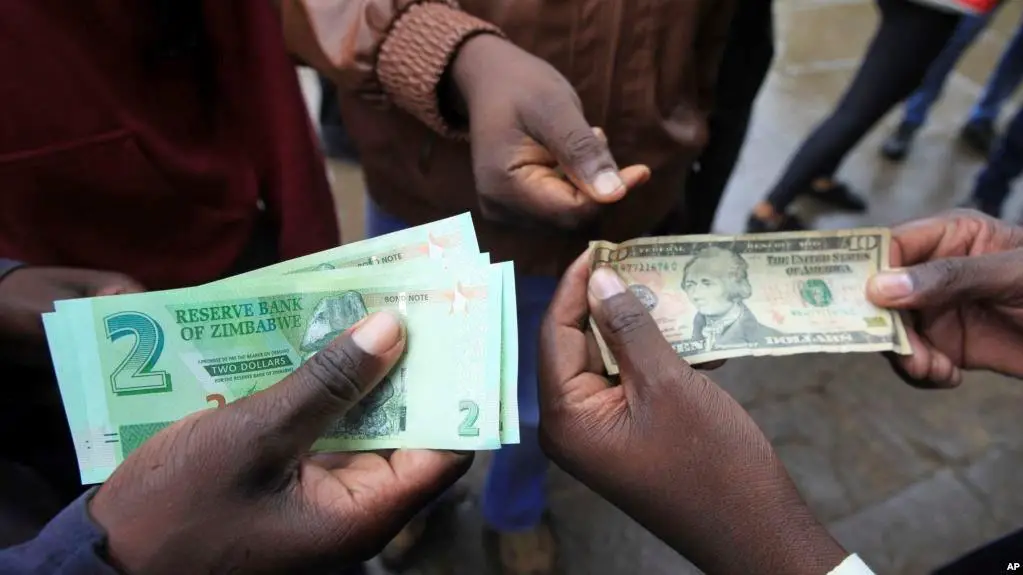- Zimbabwe has official inflation of 96% but economists predict the figure could be as high as 256%
- A widespread shortage of basic commodities
- Economists fear the situation could get to 2008 levels when all shops were empty
Zimbabwe is reeling under a new wave of inflation.
Two weeks ago, President Emerson Mnangagwa announced via a late-night broadcast that banks would not be allowed to lend money to the government and the public sector. The announcement caught many unawares and shook the market due to this policy inconsistency.
Read: Zimbabwe could revert to dollarization with weakened economy
Decreased Liquidity
Banks provide working capital for the day to day running of the majority of corporate Zimbabwe. Most suppliers work on a 30 to 90-day credit facility where supermarkets get access to products and then pay for the merchandise later. With no line of credit, there has been a shock to the supply chain. A few days after the announcement, companies started issuing press statements stating their failure to honour pre-standing contracts. Within a week, certain products started disappearing from shelves.
Cooking oil, cornmeal, and sugar have vanished from supermarket shelves. A precedent that echoes the dreaded year 2008 when another policy inconsistency made supermarkets into ghost towns. Zimbabweans know the signs of a dying economy and remember how tough life became in 2008.
Effect on Farming and Production
Farmers preparing for the upcoming winter wheat and sugar cane season have been left stranded. Like all people in business, farmers need access to credit for production. The policy inconsistency caught some farmers off guard as they were in the process of finalizing their credit facilities. The industry was not spared either; with no credit, there was no production. Zimbabwean manufacturers have all the odds against them as it is.
This was an event they could do without. When an industry is spooked, it goes into survival mode, and the first to suffer are workers, and retrenchments loom.
Knee jerk reaction by Zimbabwe leadership
Finance Minister Mtuli Ncube and Reserve bank governor John Mangudya have been regarded as complicit in the collapse of the Zimbabwean economy. Much of the problems Zimbabwe faces are a result of policy inconsistency and knee jerk reactions. Why was the president making a midnight announcement to stop lending, you may ask? The rate between the US dollar and the Zimbabwean ZWL was growing. According to the government, players in the economy were taking cheap credit and buying hard currency on the black market. They would then pay back these loans at a cheaper rate because the ZWL is in free fall. The policy inconsistency increased liquidity of too much ZWL on the market was being sighted as the cause of the weakening of the ZWL and subsequently leading to inflation. By stopping banks from lending, the government was hoping to cut the source of this cheap credit.
However, this knee jerk reaction has been likened to shooting oneself in the foot. The action was so drastic like a surgeon chopping off your arm because you have a broken finger. The irony of all this is that in a bid to arrest inflation, the ZWL has fallen even further and has taken products off the shelves leaving consumers worse off. This policy inconsistency is wreaking havoc.
Black Market
With produce disappearing off the shelves, the black market has become the source of essential commodities. Cooking oil and sugar that consumers are clamouring for can be found on the black market at double the price. The policy inconsistency has added fuel to the black market. A combo of sugar and cooking oil that was going for $USD 4.50 before the announcement is now retailing for $9. This correlates with Steven Hanke’s calculations and puts Zimbabwe at the top of the world’s inflation leaderboard at 256%.
A week later, having seen the effects of their midnight policies, the government has dropped its lending ban. Unlike the announcement made by the president flanked by his finance minister and RBZ governor, a short press statement was sent out.
The nature of the press statement is symbolic of the cataclysmic decision to cut landing in the first place. What boggles the mind is that this announcement didn’t come sooner. But the damage has already been done; inflation is up, commodities are hard to come by, and businesses are very nervous.
Critics of the government are crying for the abolishment of the current forex auction system. This is all to try to reverse the policy inconsistency. A system that is said to give foreign currency to the connected elite at much lower prices, yet they price their products at black market rates. There is no transparency in the way forex is allocated, and it has been sighted as one of the reasons for rampant inflation.
Final word
The biggest losers in all this are ordinary Zimbabweans. The teacher earning a poultry $20 000 has been priced out from affording basics. There are widespread shortages in the country, the policy inconsistency and inflation kill the economy. Calling the current environment a crisis is an understatement. All have lost faith in the economy, and Zimbabweans should brace themselves for the tough times that lay ahead with the runaway inflation.
Read: How monetary policy influences economic growth and achieve macro stability
